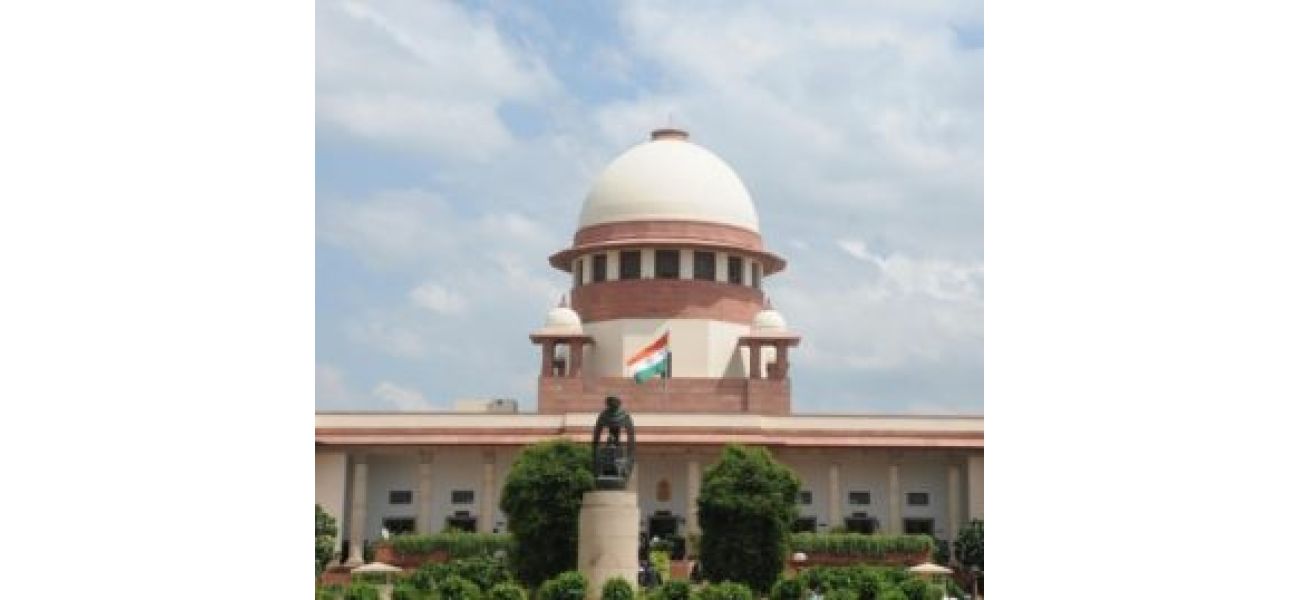SC rules that a wife can still receive maintenance from her husband, even if she does not follow the cohabitation decree.
SC rules that a woman can receive maintenance from her husband even if she refuses to live with him, as long as she has valid reasons.
January 11th 2025.

The Supreme Court, in a significant judgement, has recently ruled that a woman has the right to receive maintenance from her husband even if she has not complied with the decree to cohabit with him. This ruling came after a legal dispute was settled regarding whether a husband, who secures a decree for restitution of conjugal rights, is exempt from paying maintenance to his wife if she refuses to abide by the decree and return to their matrimonial home. A bench consisting of Chief Justice Sanjiv Khanna and Justice Sanjay Kumar stated that there is no set rule for this and each case must be considered based on its unique circumstances.
The question of whether noncompliance with a decree for restitution of conjugal rights by a wife is enough to deny her maintenance, under Section 125 of CrPC, has been addressed by various high courts. However, there has been no consistent view on this matter as the opinions of the courts were varied and conflicting. After examining several judgements of the high courts and the apex court, the bench concluded that the wife's right to maintenance under Section 125 CrPC should be upheld. Simply passing a decree for restitution of conjugal rights at the husband's request and the wife's non-compliance with it would not be enough to disqualify her from receiving maintenance.
The bench further stated that the decision would ultimately depend on the specific facts and evidence of each case. It cannot be determined solely on the passing of a decree for restitution of conjugal rights by the husband and the wife's non-compliance. In any case, this would not automatically affect the wife's right to maintenance or disqualify her under Section 125 CrPC. The bench made this authoritative pronouncement in the case of an estranged couple from Jharkhand, who got married in May 2014 but separated in August 2015.
The husband had approached the family court in Ranchi for restitution of conjugal rights, claiming that his wife had left their matrimonial home and refused to return despite his repeated efforts. In response, his wife alleged that she had been subjected to physical and mental abuse by her husband, who also demanded a dowry of Rs 5 lakh. She also claimed that he had extramarital affairs and she had suffered a miscarriage in January 2015, but her husband did not come to see her. She stated that she was willing to return to their home, but only if she was allowed to use the washroom and an LPG stove, as she was not allowed to do so earlier.
On March 23, 2022, the family court granted a decree for restitution of conjugal rights, noting that the husband wanted to live with his wife. However, she did not comply with the decree and instead filed a plea for maintenance. The family court ordered the husband to pay Rs 10,000 per month to his estranged wife as maintenance. The husband then appealed this decision to the Jharkhand high court, which ruled that the wife was not entitled to maintenance since she had not returned to the matrimonial home despite the decree.
The wife challenged this order before the apex court, which ruled in her favor. The Supreme Court stated that the high court should not have given undue weight to the previous judgement and its findings. It also noted that the wife's inability to use the toilet or cook proper meals in her matrimonial home, as accepted in the restitution proceedings, were further indications of her ill-treatment. The court allowed the appeal, setting aside the high court's judgement dated August 4, 2023. It upheld and restored the family court's order dated February 15, 2022, and directed the husband to pay Rs 10,000 per month to his estranged wife. This maintenance would be payable from the date of filing the application, August 3, 2019, and any arrears would be paid in three equal installments.
The question of whether noncompliance with a decree for restitution of conjugal rights by a wife is enough to deny her maintenance, under Section 125 of CrPC, has been addressed by various high courts. However, there has been no consistent view on this matter as the opinions of the courts were varied and conflicting. After examining several judgements of the high courts and the apex court, the bench concluded that the wife's right to maintenance under Section 125 CrPC should be upheld. Simply passing a decree for restitution of conjugal rights at the husband's request and the wife's non-compliance with it would not be enough to disqualify her from receiving maintenance.
The bench further stated that the decision would ultimately depend on the specific facts and evidence of each case. It cannot be determined solely on the passing of a decree for restitution of conjugal rights by the husband and the wife's non-compliance. In any case, this would not automatically affect the wife's right to maintenance or disqualify her under Section 125 CrPC. The bench made this authoritative pronouncement in the case of an estranged couple from Jharkhand, who got married in May 2014 but separated in August 2015.
The husband had approached the family court in Ranchi for restitution of conjugal rights, claiming that his wife had left their matrimonial home and refused to return despite his repeated efforts. In response, his wife alleged that she had been subjected to physical and mental abuse by her husband, who also demanded a dowry of Rs 5 lakh. She also claimed that he had extramarital affairs and she had suffered a miscarriage in January 2015, but her husband did not come to see her. She stated that she was willing to return to their home, but only if she was allowed to use the washroom and an LPG stove, as she was not allowed to do so earlier.
On March 23, 2022, the family court granted a decree for restitution of conjugal rights, noting that the husband wanted to live with his wife. However, she did not comply with the decree and instead filed a plea for maintenance. The family court ordered the husband to pay Rs 10,000 per month to his estranged wife as maintenance. The husband then appealed this decision to the Jharkhand high court, which ruled that the wife was not entitled to maintenance since she had not returned to the matrimonial home despite the decree.
The wife challenged this order before the apex court, which ruled in her favor. The Supreme Court stated that the high court should not have given undue weight to the previous judgement and its findings. It also noted that the wife's inability to use the toilet or cook proper meals in her matrimonial home, as accepted in the restitution proceedings, were further indications of her ill-treatment. The court allowed the appeal, setting aside the high court's judgement dated August 4, 2023. It upheld and restored the family court's order dated February 15, 2022, and directed the husband to pay Rs 10,000 per month to his estranged wife. This maintenance would be payable from the date of filing the application, August 3, 2019, and any arrears would be paid in three equal installments.
[This article has been trending online recently and has been generated with AI. Your feed is customized.]
[Generative AI is experimental.]
0
0
Submit Comment





